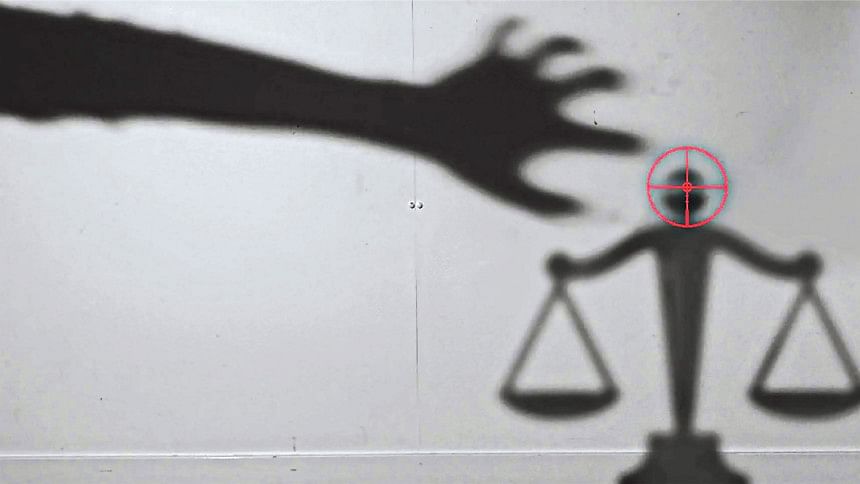The state of witness protection in Bangladesh

In both civil and criminal aspects of any justice system, witness evidence is a vital point. Witness evidence plays a critical part, among the many types of evidence, in leading to a conviction. Oral account of a witness is considered strong evidence in a trial, meaning, reliable witnesses ensure justice be delivered, whereas the lack thereof may lead to the acquittal of the offender. That is why, it is crucial to ensure the safety and security of the witnesses.
In Bangladesh, it has been extensively recorded that witnesses face threats, intimidation and even physical violence from the accused parties specially in criminal cases. In many cases, witnesses backtrack or refuse to testify in fear for the safety of their person and family.
According to Narcotics Control Department, all accused in 23,535 narcotics cases filed during the last 20 years were acquitted, mainly for the failure to produce witnesses.
In 2023, arrest warrants were issued against 34 witnesses, as they refused to come and testify in Court, in a case where 11 people were burned alive in Chittagong. Countless more instances of witness intimidation and murder exist, tarnishing the legal system of this country. Many of these instances may have been prevented by the witness protection schemes.
In Bangladesh, section 503 of the Penal Code 1860 provides for punishment for the commission of criminal intimidation. Section 14 of the Prevention and Suppression of Human Trafficking Act, 2012 provides for punishment for threatening victims and witnesses. But there are no unified witness protection laws, nor any judicial mechanism in place. In 2006, Bangladesh Law Commission submitted a report on a proposed law relating to protection of victims and witnesses of crimes involving grave offences. Again, in 2011, it submitted another report on the matter to the law ministry and the ministry drafted the Witness Protection Act in the same year. In Writ Petition No. 8769 of 2010 filed by BNWLA, the High Court Division ordered the government to enact a law to protect the victim and witness of sexual harassment.
In 2015, a High Court Division bench passed an order directing for the enactment of a witness protection law. Furthermore, in August 2017, with the joint effort of the UNDP and the Supreme Court of Bangladesh, the Witness Management Policy for subordinate Courts and Tribunals 2017 was drafted. Despite all these steps, no witness protection law or scheme has been enacted to this day.
Bangladesh has one of the lowest conviction rates in the world, meaning, most crimes go unpunished, and most criminals are not put to justice. A major reason for this is lack of evidence. In most of the rape and murder cases, the accused are acquitted for lack of witness testimony. It is not difficult to understand why, as people would want to testify in court with an axe hanging over there and their family's neck. So, there is a desperate need for a witness protection policy in our country. An effective witness protection policy, or law, if enforced appropriately, would drastically improve the speed and efficiency of investigation and prosecution stage. It would possibly also speed up the trial, and slowly drain the oceans of pending cases that is clogging our courts.
To bring positive changes in our sluggish legal system, it must be ensured that witnesses are protected and feel safe to come forward and testify. This requires a unified legislation, comprehensive legal framework and increased resources for protection, and efforts to combat corruption and impunity.
The Writer is a Student of Law, University of Dhaka.

 For all latest news, follow The Daily Star's Google News channel.
For all latest news, follow The Daily Star's Google News channel. 



Comments